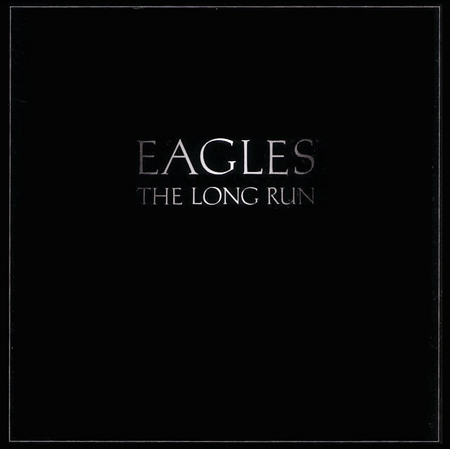
The Long Run (1979)

1. The Long Run
2. I Can't Tell You Why
3. In the City
4. The Disco Strangler
5. King of Hollywood
6. Heartache Tonight
7. Those Shoes
8. Teenage Jail
9. The Greeks Don't Want No Freaks
10.The Sad Cafe
When a band stares down the abyss of its own implosion and still manages to deliver a landmark like Hotel California, the eventual burnout is not a surprise — it’s an inevitability. And so it was with The Long Run, the Eagles’ final studio album before their fifteen-year hiatus, and the product of three years’ worth of exhaustion, infighting, and diminishing inspiration. That the album reached number one and produced three Top Ten singles speaks more to the lingering momentum of Hotel California than to any musical renaissance.
The signs of fatigue are audible. The energy is sporadic, the writing uneven, and the tone frequently uncertain. Randy Meisner had exited by this point — another casualty of the band’s relentless pressure cooker — and his replacement, Timothy B. Schmit (late of Poco), made a delicate impression with I Can’t Tell You Why. It’s a graceful, subdued track, more R&B than rock, and Schmit’s feather-light vocal delivers its wounded vulnerability with surprising finesse. Still, the track feels less like an Eagles song and more like a soft-soul diversion — lovely on first listen, perhaps, but one that fades with repeated exposure.
The same might be said of the title track. The Long Run opens the album with a kind of Memphis swagger — mid-tempo, mildly bluesy, and structurally lean. Joe Walsh’s slide guitar is tastefully deployed, but the song never really lands. It lacks the scale, the ambition, and the bite of its predecessors. Heartache Tonight, on the other hand, swings harder — a rowdy barroom stomp built for jukeboxes and beer-fueled singalongs. It’s Frey’s throwback to their early roots, unashamedly honky-tonk, and one of the few places on the album where they sound like they’re actually enjoying themselves. As party pieces go, it’s effective — but its charm is circumstantial. It plays better with alcohol.
Beyond the singles, the landscape gets murkier. The Disco Strangler is exactly as awkward as its title suggests — a stab at menace that lands closer to self-parody. The Greeks Don’t Want No Freaks is even worse, a half-hearted frat-rock romp that feels less like satire and more like a last-minute filler track dressed in party clothes. King of Hollywood revisits the seedy undercurrents explored more elegantly in Hollywood Waltz from One Of These Nights, but this time with a leering cynicism that lacks lyrical economy or emotional weight. The band sounds like it’s going through the motions.
Joe Walsh contributes In the City, a track lifted from The Warriors soundtrack — re-recorded here, but offering nothing the solo version hadn’t already captured. It’s serviceable, but one wonders what business it had on a band album. Better — marginally — are Teenage Jail and Those Shoes, both of which experiment with textures and themes not commonly associated with the Eagles. There’s a darker palette here: murky synthesizers, funk-inflected bass lines, even a talk box. The ideas are there, but they never quite coalesce. The fatigue is audible.
Only the closing track, The Sad Café, comes close to the kind of gravitas the band once wielded so effortlessly. Henley delivers a nostalgic, almost elegiac performance, reflecting on the end of innocence and the dissolution of scenes — musical and personal alike. In hindsight, it sounds like a goodbye. And for a long time, it was.
There was a tour, of course — a lucrative one, though riddled with animosity. By all accounts, the band’s interpersonal chemistry had soured past repair. Tempers flared, lawsuits followed, and by 1980, the Eagles were officially grounded. The album sold well (how could it not?), but even in real time, critics sensed the creative engine had sputtered. The Long Run is not a terrible album — it’s simply a tired one.
Still, had the band ended with Hotel California, they would have been accused of abandoning ship at the height of their powers. That they continued, however briefly, gave us one more snapshot of a band running on fumes. And then they were gone — until, of course, Hell famously froze over.
But that’s another story.
Go back to the main page
Go To Next Review